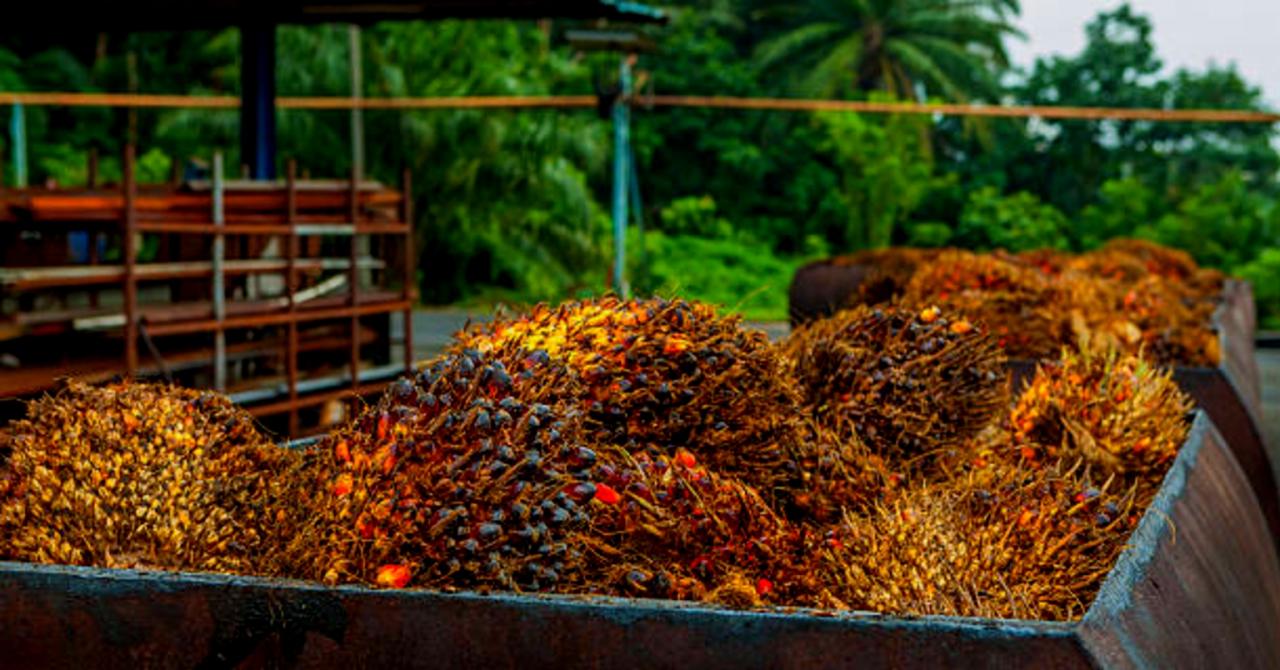Complete Guide: How to Start Palm Oil Business in Nigeria

Palm oil business is one of the best businesses to start and make a big profit with small or large-scale investments. This article will cover how to create a palm oil business, so if you are looking at a palm oil business plan, this will help.
Palm oil is the native oil used in Nigeria, mainly for cooking. It is reddish in colour and can be thickened if stored in a cool place for a long time. It is lowly inflammable but when put on the Fire to a boiling point, can be inflammable if in direct contact with naked Fire.
Apart from using palm oil for cooking, it is also medicinal and used for the release of stomach pain and a potent source of vitamin A for eyesight, though it has been confirmed that palm oil can equally cause cholesterol (a disease that restricts the free flow of blood in the body)
Besides using palm oil for cooking, it is also used in making all variety of things such as soda soap, toilet soap, margarine, body cream, and cosmetics. Other uses of palm oil include the following:
- Drug production
- Fluids for drilling
- Water treatment chemical
- Production of canned food such as sardines.
- Production of dog and other domestic animal food.
- Preservation of food, raw and cooked.
Steps to start a palm oil business
Palm oil business is very profitable if handled well. Since palm oil affects every part of our lives, old and young, rich and poor, the market for this essential commodity is booming. If you decide to go into the palm oil business, you will be okay with it since its demand is not abating. There is mainly three types of palm oil business:
Palm tree plantation
This aspect of the palm oil business is highly capital-intensive. It requires the purchase of large expanse of land, preferably acres of land. The soil must be tested for appropriateness of its use for palm tree plantation since the quality of the palm oil depends on the land used for cultivation.
So you must decide on the size of the land and its location for easy access to production plants and markets. The incubation period after plantation of the palm trees can take between five years and ten years before harvesting. So as a farmer, you must be very patient. And once the harvesting begins, it is a regular exercise since different palm trees will produce ripe palm oil seeds at other times and must be harvested.
The palm tree plantation owner has to choose whether to set up a mill to extract the palm oil or sell the palm oil kernel seeds to those who do the processing. The capital requirement for this type of project runs into millions of naira.
So, in summary, to set up a Palm oil tree plantation:
- Purchase land or make use of family land.
- Test the soil to see if it is good for the plantation. Not all soil is suitable.
- Be confident that there is access to the land to move your palm produce.
- Plant the palm tree.
- Wait for five to 10 years.
- Harvest your palm produce.
Setting up a palm oil mill
This is another aspect of the palm oil business. This is relatively capital-intensive since it requires the installation of palm oil milling machines to process the palm oil kernel seeds. The processing of palm oil kernel can be done in two ways;
- Commercial processing This is a situation whereby the milling machines are rented out for processing other people’s palm oil kernels, and such people pay a hire fee for the milling machines. It is a perfect business since the machines are used to capacity throughout the year, particularly during the season of palm oil kernel harvesting, between January and May. During the off-season, the processing business is relatively stable from July to December.
- Installation and use of the milling machines for own use. The second category of the palm oil business is to process the palm oil kernel and sell the palm oil to users. In this exercise, the investor installs the milling machines and arranges to buy the harvested palm oil kernel in relatively large quantities from different sources farmers. The purchased palm kernel seeds are then processed (oil extraction from the palm kernel oil seed), and the oil is sold to resellers or users.
You must look for an excellent location to site your Pal oil milling machine. It should be close to farm and also close to major road for easy transportation.
Trading on palm oil
Most investors in the palm oil business engage in this category because it is in the buying and selling you make quick money. This business involves buying palm oil in large quantities, storing them for months, relatively in large quantities, and selling it during the off-peak period when the supply to the market has reduced. During this period, the traders will bring out their stock for sale and make a reasonable amount of profit. From the background analysis, it is assumed you understand the different aspects of the business.
The steps you need to take before starting your palm oil business are as follows:
1. Formal and informal market research to understand the nature of the business, the volume of the business, who are the existing buyers and seller of the product, where are they concentrated and which states you have the chief producers of palm oil. It would help if you also found the prevailing prices of buying and selling and from which states you can obtain the palm oil cheaper and at the right quality.
2. Capital to be invested. From the research report, you will be able to assess the capital requirements of the business and where to access it. The amount of capital required must be able to meet all of the following:
- Working capital : This is the minimum amount of money required to buy the palm oil for sale. Also, there will be sufficient cash for transporting the palm oil from where they are purchased to the warehouse.
- Cost of acquiring the warehouse where the palm oil will be stored during the period of low sales until business picks up again in the peak period.
- Cost of means of storage – kegs of mainly twenty-five liters. The quantity to be purchased depends on the level of investment to be made in the business.
3. You need to know how to preserve palm oil. So, Storage space and means of storage must be arranged. The storage space (warehouse) must be spacious, have security, access road, and be conducive for oil storage. Also, the kegs for storing the oil must be arranged. You can rent a room for storage too.
4. Contact suppliers. You must find out where sellers (suppliers) of palm oil are and which state produces the best quality at reasonable prices. You must compile a list of suppliers and try to find out who they are, how reliable, the quality of oil they sell, the credit facility offered, and the possibility of establishing a long-term relationship with them.
5. Decide on the mode of transportation of purchased palm oil. There are so many commercial carriers available and you can approach many of them to compare transport fares, how reliable they are, security of goods on transit and the ability of the carrier to maintain the condition of the oil carried from where they picked up to their destination. If possible, buying a vehicle for transporting palm oil is better for continence and reliability.
6. Market your products. From the outset, it is important to contact your products’ would-be retailers (buyers) and inform them that you will be a reliable palm oil supplier during the season and off-season. Compile their list and get in touch with them occasionally since they are why you are in business.
Finding Palm Oil Exporters and marketing your Palm Oil Business
Suppose you are planning to export your palm oil. You can search for palm oil exporters.
One of the best places to market your palm oil business and find international buyers online is Alibaba. Alibaba.com is a website that connects suppliers, manufacturers with buyers. So you can go to Alibaba and promote your product.
You can also find local palm oil exporters at VConnect
Ensure you do an adequate background check before entering into business with anyone.
Conclusion
The palm oil business is one of the most profitable businesses anybody can engage in. Because of the demand for the product and the ease at which one can start it without elaborate feasibility study and report unless one is going to a palm tree plantation and setting up a palm oil milling plant.
Anybody can do it; it only requires so much protocol such as registration with Corporate Affairs Commission and NAFDAC if one is doing the business on a medium and large scale.




